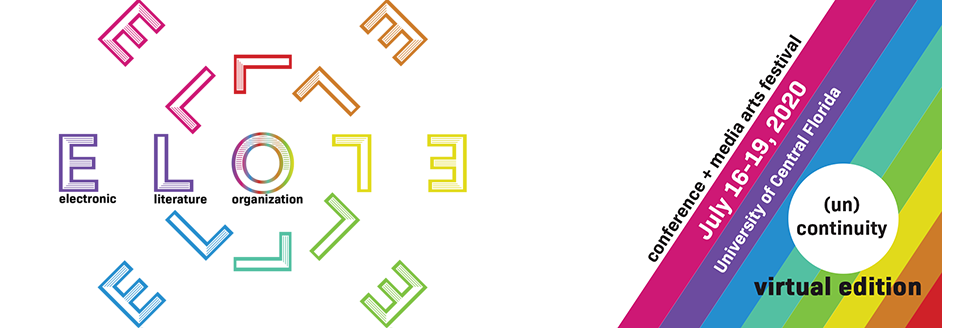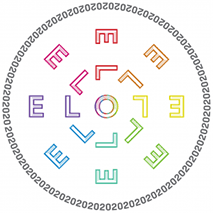Proposal Title
Submission Type
Conference Proceedings Paper
Abstract
This essay, a RiPOSTe to Anna Nacher's forthcoming "Gardening E-Literature" in Electronic Book Review (5 July 2020), asks: Should the e-literature community include third-generation works in collections, syllabi, databases, prizes? A related question: do third-gen makers have a role in “decolonizing” e-literature? Who or what “colonizes” e-lit? E-literature began as a coterie and has become a scholarly field. Using the comparison of a field versus a walled garden, the essay examines critiques of e-literature and variations on field definitions. It ends with two ideas about how to "decolonize" e-literature; about how equity and inclusion work in tandem with decolonization; and why those efforts are urgent in the context of pandemic and protests supporting Black lives and racial justice.
“Decolonize” E-Literature? On Weeding the E-lit Garden (a RiPOSTe to Anna Nacher's "Gardening E-Literature")
This essay, a RiPOSTe to Anna Nacher's forthcoming "Gardening E-Literature" in Electronic Book Review (5 July 2020), asks: Should the e-literature community include third-generation works in collections, syllabi, databases, prizes? A related question: do third-gen makers have a role in “decolonizing” e-literature? Who or what “colonizes” e-lit? E-literature began as a coterie and has become a scholarly field. Using the comparison of a field versus a walled garden, the essay examines critiques of e-literature and variations on field definitions. It ends with two ideas about how to "decolonize" e-literature; about how equity and inclusion work in tandem with decolonization; and why those efforts are urgent in the context of pandemic and protests supporting Black lives and racial justice.




Bio
Kathi Inman Berens is Assistant Professor of English at Portland State University focused on book publishing and digital humanities. Her essays have been published in the Debates in Digital Humanities series (U. Minnesota Press), Oxford University Press, Electronic Book Review, Hyperrhiz, Digital Humanities Quarterly, and Memoires du Livres/Studies in Book Culture. She is an editor of the in-progress Electronic Literature Collection Volume 4.